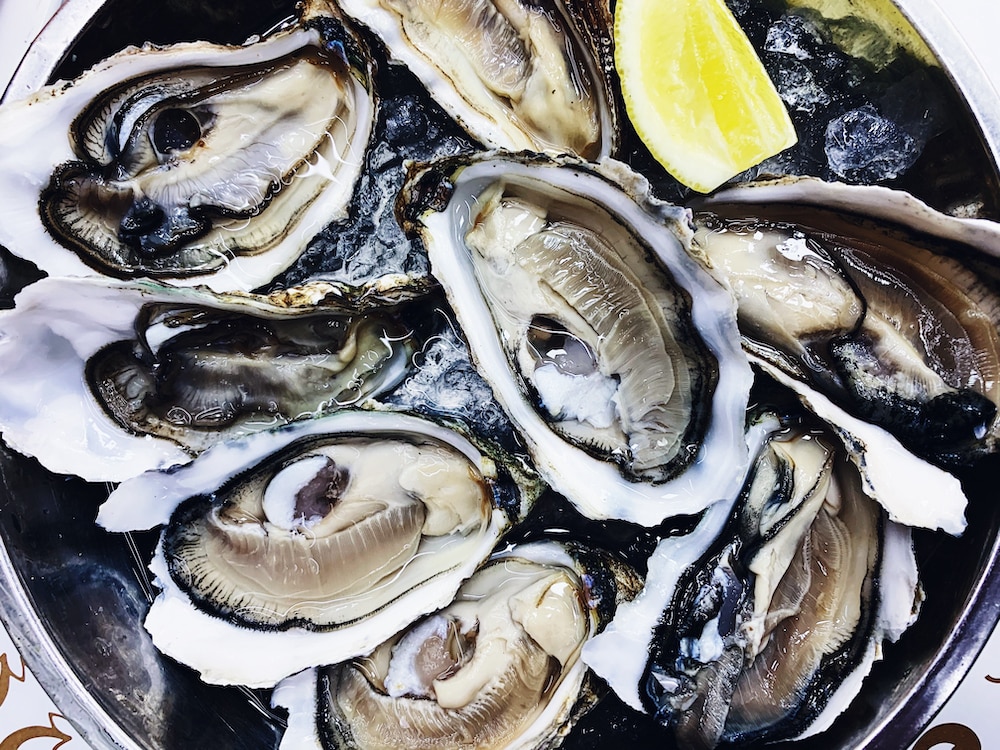Create a free profile to get unlimited access to exclusive videos, sweepstakes, and more!
The end of oysters? Global warming is changing our climate and our menu
Awe, shucks.

Preparing food is an art. It’s one many of us embark upon to varying degrees of success, but seeing a master at work is a real treat both for the eyes and the palate. It’s the reason we enjoy a professionally prepared meal at a nice restaurant and why we like watching cooking competition shows like Master Chef (now streaming on Peacock!).
Visiting a nice restaurant is an opportunity to taste foods we might not typically prepare ourselves and enjoy delicacies which are usually beyond our gastronomical grasp. One popular option at many coastal restaurants are oysters. While oysters may appear unappetizing, they’ve been a mainstay of the human diet for thousands of years. There’s evidence that indigenous Australians were eating them 10,000 years ago and they’ve been cultivated around the world, to varying degrees, ever since.
While the menu of human foods has changed over the millennia, removing some foods and adding others, oysters have maintained their space as a regularly consumed food. That might be poised to change soon.
Our societies, and our diets, are built on the expectation that climates remain relatively stable over long periods of time. We’ve built up infrastructure and cultural habits under the assumption that, for the most part, resources available this year will also be available next year. Now, those foundations are being challenged by quickly shifting ecosystems, as a result of human-driven climate change. As global temperatures rise, we’re forced to redraw lines and reassess things which have always been a given. It’s increasingly likely that areas which have historically been great for producing specific foods will soon cease to be so, and we’re starting to see it with oysters.
Scientists from the University of South Florida recently completed a comparison of wild oyster reefs in Florida’s Tampa Bay. Their findings, published in the Proceedings of the National Academy of Sciences, found that conventional oyster habitats are shrinking at an alarming rate, all because temperatures are climbing higher.
As is the case in any ecosystem, there’s a biological arms race happening in Tampa Bay. Oysters and mangroves are fighting for the same pieces of land and, so far, the oysters have been winning. That’s because the Tampa Bay area has historically been subtropical. It’s warm during most of the year but experiences a drop in temperature and subsequent freezes during the winter. Those freezes keep the mangroves at bay, pushing them back and keeping salt marshes open for oysters to build up their reefs.
Over recent decades, as temperatures rise, those seasonal freezes are happening less often and with less severity. As a result, mangroves are gaining a larger foothold in the area. A comparison of aerial images gathered between 1938 and 2020 reveals that 83% of oyster reefs which existed in the area during the early 20th century are now gone, taken over by mangrove islands. Moreover, the rate of ecosystem conversion is increasing. It’s likely that sometime soon, oysters will be entirely pushed out of the region.
In addition to impacting the foods people eat, there are downstream effects on other animals which call Tampa Bay home. Certain species of birds also depend on oysters as a main food source and likely won’t persist in the area once they’re gone.
Of course, we shouldn’t expect oysters to vanish from the menu, or from the planet, in the near future. There are other oyster reefs farther north which are still hanging on. However, scientists are clear that this is only the beginning and what’s happening in Tampa Bay serves as a warning for those northern ecosystems. As the globe continues to warm, the conversion of subtropical ecosystems into fully tropical ones will creep northward until those environments suffer the same fate.
Whether you enjoy eating the occasional oyster or you just like knowing the diversity of ecosystems are being preserved, we’re going to need concerted efforts to halt and reverse the effects of climate change. Those efforts will also need to be coupled with intentional management of ecosystems to maintain critical species. And we’re going to need to work quickly before they’re all cooked.


























